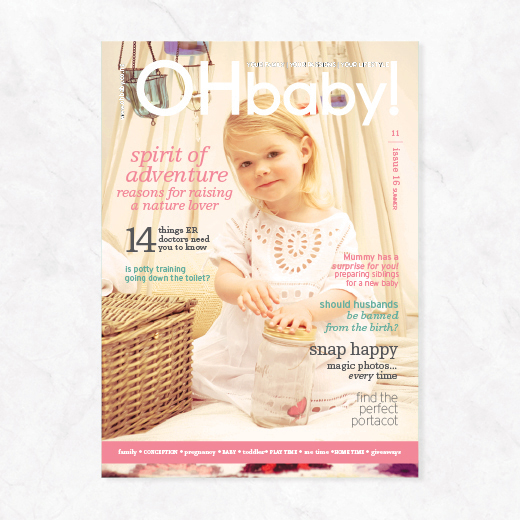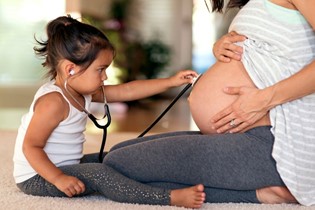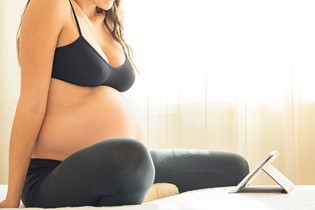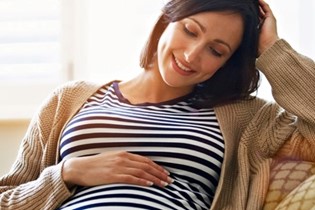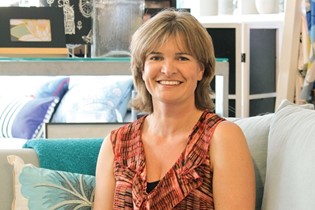Improve your fertility naturally

Hidden health issues may be hurting your chances of pregnancy so get healthy and improve your fertility at the same time, writes natural fertility expert Loula George.
Most couples happily spend many months and thousands of dollars preparing for the wedding that marks the beginning of their married life. Yet few prepare for the conception that marks the beginning of their child's life with the same loving detail, despite it being one of the most significant events in their lives.
For most couples it is only after conception they consider committing themselves to a health programme to prepare for birth. Most never question the obvious omission of preconception care. If there are difficulties conceiving, there is a good chance that the problem is as simple to overcome as taking the time (at least four months) and effort to ensure that both prospective parents are in excellent health - that means free of hidden infections, toxic (heavy) metals, environmental hazards, excessive stress and that they are eating only healthy, preferably organic foods. With that and finding the best time for conception, the chances of producing a healthy baby can be dramatically increased.
It takes 100 days (nearly three and a half months) for an egg follicle to mature and up to 116 days for sperm to be produced. If during that time there are infections, nutritional deficiencies, toxins or other contaminants in the body, the chances of producing healthy eggs and sperm, and therefore a healthy foetus, are greatly reduced. Simply put, healthy bodies have a better chance of making healthy babies. Since it takes up to four months to produce the eggs and sperm that will make a baby, the couple's health needs to be at its best at least four months before conception in order to maximise the chance of pregnancy.
The first step is to actually avoid pregnancy by using natural forms of birth control for at least four months while both parents focus on bringing their health into top condition. This can often be hard for couples who have been solely focused on conceiving, sometimes for years. However, allowing the couple to have a break can also be a relief. It is also essential for women who have been on hormonal birth control to give their bodies a chance to remove any synthetic hormones from their systems and allow their cycles to regulate again.
Environmental hazards such as smoking, alcohol and caffeine consumption, and chemicals such as pesticides or solvents etc, should be identified, both in the home and work environments and eliminated.
Hidden infections
GPs can check hormone levels and check for any hidden genito-urinary infections. Over 50% of women with infertility or miscarriage problems have been found in a study by the Foresight Clinic (published in the Journal of Nutritional & Environmental Medicine 1995) to have hidden infections and approximately 20% of men have them, often with no symptoms. These include mycoplasma and ureaplasma bacteria. Although, I cannot say from my own clinical experience that the occurrence is as high as 50%, there have certainly been many cases where I have diagnosed couples with mycoplasma and ureaplasma infections. These have been treated and they have gone on to have successful pregnancies. For example, one couple, who had been trying for 10 years, now have two children.
It is also important to screen for any other immunological factors that may cause implantation failure or miscarriage, such as anti-nuclear antibodies and cardiolipin antibodies. Dr Alan Beer in his 2006 book Is Your Body Baby Friendly? claims that 85% of unexplained infertility is caused by immunological factors.
Other screening tests are for blood-clotting disorders that can interfere with blood supply to either the implantation site or the developing embryo.
Toxic metals
Screening is done for essential trace elements and levels of toxic heavy metals (such as lead) in the system using hair or urine analyses. Toxic metals such as mercury, cadmium, lead and aluminium displace minerals that are essential for healthy eggs and sperm and can have severe effects on the developing foetus. These toxic metals can be found all around us, though we are often unaware of them. Aluminium in our cookware, mercury in our dental fillings or in contaminated fish can leech into our system. Lead can easily be inhaled while removing paintwork in home renovations (a common pastime, it seems, of couples before or during pregnancy). Toxic metals can be found in contaminated water, sometimes right out of our kitchen tap.
Having identified and eliminated excessive toxins, environmental hazards, hidden infections, allergies and any other immune imbalances, the next step is to ensure that both parents have all the necessary vitamins and minerals that make up the building blocks of a healthy embryo by eating a healthier diet and by taking supplements as necessary.
Any reproductive health or general health issues for both partners should be dealt with. This might be endometriosis, polycystic ovary syndrome (PCOS), fibroids, asthma, autoimmune diseases or sperm problems. These can be treated using herbal medicine, diet changes or acupuncture. Remember, a healthy body is a fertile body!
Stress less
Address any stress that you might be under. Stress not only affects sexual performance but fertility, conception and all other aspects of reproduction. As well as physical hindrances to conception there can also be real psychological blocks. Expert help is sometimes needed to unravel and alleviate these, whether it's counselling, hypnotherapy or BodyTalk, a holistic therapy that allows the body's energy systems to be re-synchronised.
If you need IVF or other assisted reproductive procedures a preconception care programme can support you before and during the procedure. A 2003 study in the UK showed IVF success more than doubled after preconception healthcare.
In my years of dealing with natural fertility many couples who have had multiple IVF failures have come to me before embarking on their next round. In many cases they either find themselves conceiving naturally, or have a positive outcome with IVF after completing the preconception care programme.
Loula George (ND, Dip Med Herb) is a registered naturopath and medical therapist specialising in fertility and women's health. She is also a director of Mother-Well Holistic Health in Auckland: www.mother-well.co.nz.

AS FEATURED IN ISSUE 16 OF OHbaby! MAGAZINE. CHECK OUT OTHER ARTICLES IN THIS ISSUE BELOW
